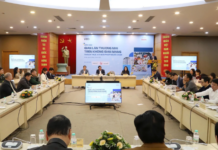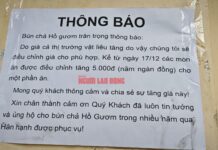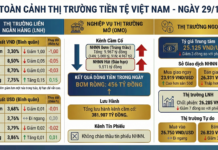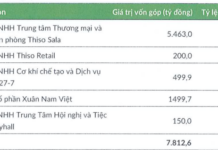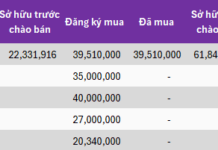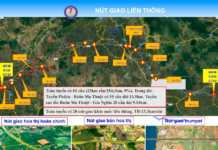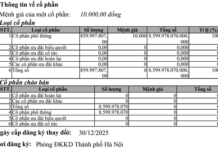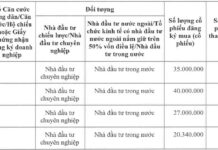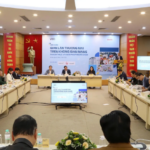This is the Funan Techo Canal Project. The project is planned to be about 180 km long, connecting the Mekong River to the sea in southwest Cambodia.
The project, worth approximately USD 1.7 billion, includes 3 weirs, 11 bridges and 208 km of roads on both sides and is expected to be implemented by the China Road and Bridge Corporation (CRBC) under the build-operate-transfer (BOT) format. This format allows the construction, operation and collection of profits from the project for a period of 50 years.
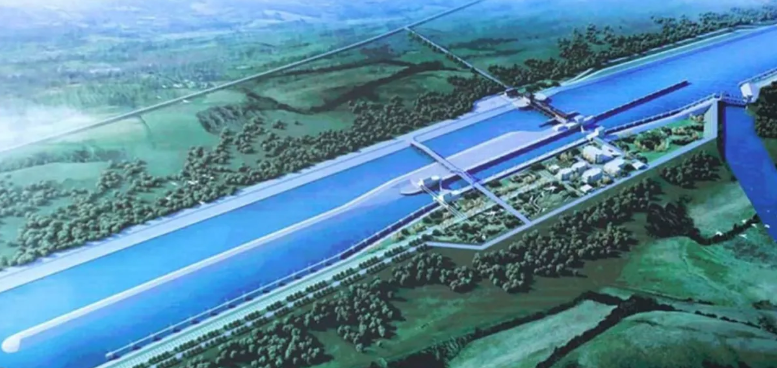
Perspective of the Funan Techo Canal. Photo: MPWT
Regarding concerns surrounding the project, on April 23, the Vietnam Mekong River Commission organized a consultation meeting in Can Tho City. At the meeting, many experts and managers expressed concerns that the Cambodian USD 1.7 billion canal project will have negative impacts on Vietnam’s Mekong Delta (MD).
Among them, Assoc. Prof. Dr. Le Anh Tuan, former Deputy Director of the Institute for Climate Change Research, Can Tho University, expressed the project when the Funan Techo Canal is expected to exacerbate water shortages in the MD and could even affect more than half of the region’s cultivated area during the dry season in the future.
In addition, the expert believes that in the rainy season, this giant canal with embankments on both sides for traffic and urbanization will become a dike cutting across floodplains (specifically, floods on the Mekong River are caused by overflow). This will significantly change the distribution of water to the low-lying areas of the Long Xuyen Quadrangle, affecting the MD’s largest rice-producing region.
Sharing the same view with Assoc. Prof. Dr. Le Anh Tuan, Mr. Pham Ho Quoc Tuan – the Southern Regional Hydro-Meteorological Station, said that during the dry season, the flow of the Mekong and Bassac rivers to the downstream has decreased over the years. Therefore, if the Funan Techo Canal takes an additional amount of water (it is not yet clear how much more), the downstream flow will certainly decrease. This will lead to a possible shortage of water in the dry season, which will definitely affect the MD.
Currently, the Funan Techo Canal project has a lot of information that has not been fully provided by Cambodia, so there are many ambiguities, making it difficult to imagine how this canal will affect agricultural production. Therefore, the representative of the Vietnam Mekong River Commission said that up to now, based on studying the information provided about the project to the Mekong River Commission by Cambodia, the Vietnam Mekong River Commission has conducted bilateral exchanges with Cambodia.
The Vietnam Mekong River Commission also requested that Cambodia share detailed information about the project, including the project’s feasibility report, conduct joint research on the project’s impacts, and apply the Mekong River Commission’s guidelines for assessing transboundary impacts.
In addition, the Mekong River Commission Secretariat is independently studying the impacts of the Funan Techo Canal project, especially transboundary impacts, in order to propose measures to minimize and monitor the impacts.
Previously, on August 8, 2023, the Mekong River Commission Secretariat received an official dispatch from Cambodia on the Funan Techo Canal inland waterway project. The dispatch stated that the purpose of the project is to connect inland and maritime waterways by building a 180 km long waterway, while also expanding and deepening existing canals, and digging new sections to connect the sea with a tonnage of 1,000 DWT…
However, up to now, Cambodia has not yet provided specific information on some technical aspects of the project, such as the elevation of the riverbed at the starting and ending points of the canal sections, the slope, the width of the canal surface, the volume of water discharge…
Vietnam is very interested in the Funan Techo Canal project and has proposed that Cambodia closely coordinate with Vietnam and the Mekong River Commission in sharing information and assessing the impacts of this project on water resources and the ecological environment of the Mekong Delta region in order to ensure the harmonization of interests of riparian countries and people living in the region.

